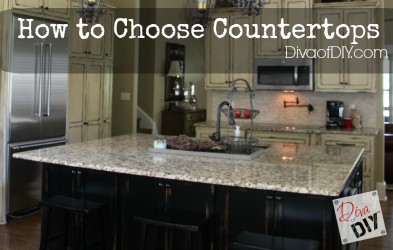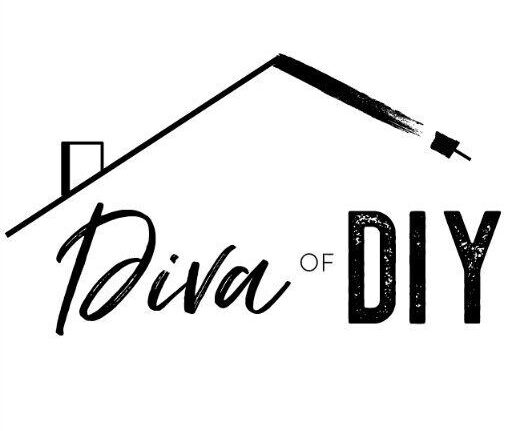
So the first thing you need to understand when choosing countertops is the pros and cons of each material. While at first glance granite may seem like the choice for you, consider other options as well.
Let’s get started.
Granite
Pros: Granite’s beautiful mottling and the host of colors and patterns found in nature make each piece one of a kind. It stands up well to splashes, knife nicks, heat and other wear and tear.
Cons: Like most stone, granite must be sealed every so often to avoid stains. And its heaviness means you’ll need very sturdy cabinet boxes to support the weight.
Cost: $35 to $100 per square foot, installed
Solid Surfacing
Made primarily from acrylic and polyester, solid surfacing first was sold under the brand name Corian, which is often (erroneously) used as a generic term for it. Today, it’s made by a host of manufacturers and has enjoyed steady popularity over the years.
Pros: Because solid surfacing is nonporous, it’s virtually maintenance free — no sealing or special cleaning required. Although it can be susceptible to scratches and burns, those are easy to sand out. Color and pattern options are extensive, and because you’re not trying for the look of a natural material, you can experiment with vibrant hues such as turquoise or tomato red. Seamless installation means there are no cracks to trap dirt and debris.
Cons: Solid surfacing can have a patently artificial look and feel, yet can approach the price of natural stone. As mentioned above, it doesn’t stand up to hot pans or sharp knives as well as other materials.
Cost: $35 to $100 per square foot, installed
Quartz Surfacing
Crafted of resin and quartz chips tinted with color, quartz surfacing (also called engineered quartz or engineered stone) is a good compromise between the beauty of stone and the easy care of solid surfacing.
Pros: Quartz surfacing has the same advantages as solid surfacing with regard to maintenance. As an engineered product, it’s available in a far greater range of colors and patterns than natural stone.
Cons: This material doesn’t have the natural variegation of granite, so it may be evident that it’s an engineered product. It’s relatively pricey, although its durability can make it a worthwhile investment.
Cost: $40 to $90 per square foot, installed
Marble
Pros: Nothing beats marble for sheer elegance. It stands up to heat well, and because it remains perennially cool, it’s a traditional choice for pastry and baking stations (read: Dough won’t get too soft).
Cons: Marble is very susceptible to stains, even with sealing. For that reason, it’s not often used throughout an entire kitchen — most homeowners limit it to one or two small areas. It can also scratch and chip.
Cost: $40 to $100 per square foot, installed
Stainless Steel
Once found mostly in commercial kitchens,stainless steel has slipped into vogue within the past two decades. These countertops are custom made to fit your kitchen, so you’re guaranteed a tailored look.
Pros: There’s a reason stainless steel is used in restaurants and other high-traffic kitchens: It’s nearly indestructible, and it resists heat and bacteria. It also provides a very distinctive look that feels appropriate in contemporary and industrial-style kitchens.
Cons: Fingerprints show and must be wiped off frequently, and stainless steel can also dent. It can be loud as pots, pans and dishware clang against the surface. Chemicals can affect its color and cause unwanted etching. Stainless steel is extremely expensive due to the custom fabrication.
Cost: $65 to $125 per square foot, installed
Concrete
Think concrete is just for floors? Think again. Slightly edgier than other materials, concrete countertops have an industrial chic that fits right into a loft or adds interest to an otherwise traditional space.
Pros: Concrete is extremely versatile: It can be cast in any shape and custom tinted any shade you wish. You easily can add unique inlays, such as glass fragments, rocks and shells. Concrete stands up well to heavy use, although it isn’t as heat resistant as some other surfaces.
Cons: Because it’s porous, concrete will stain without frequent sealing. With time and settling, small cracks can develop. Concrete is extremely heavy and will need strong support beneath. Like stainless steel, its custom creation ups the price tag.
Cost: $75 to $125 per square foot, installed
Butcher Block
Butcher block has a classic appeal and always looks fresh. It’s especially fitting for traditional, country and cottage-style kitchens.
Pros: Many homeowners like butcher block’s warm, natural appearance and variegated wood tones. Although knives scratch it, many people like the shopworn look it develops — after all, it’s what chopping blocks have been made of for years. But you can also sand scratches down with ease.
Cons: Wood swells and contracts with moisture exposure, and butcher block is no exception. It harbors bacteria and needs frequent disinfecting. Oiling is a must to fill in scratches and protect the surface.
Cost: $35 to $70 per square foot, installed
While there are several other options when it comes to choosing a countertops, the countertop options mentioned above are the most affordable and popular within the general public. Take some time. Just don’t dive right into something. Tour different show rooms in your area, talk to a variety of granite fabricators, visit scrap yards and always check out your local Resale stores like Habitat for Humanity. You won’t believe some of the countertops I have found in there!
Did this article help you choose countertops for you home? Which are you going to choose?
